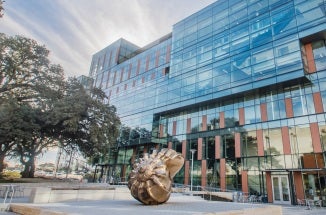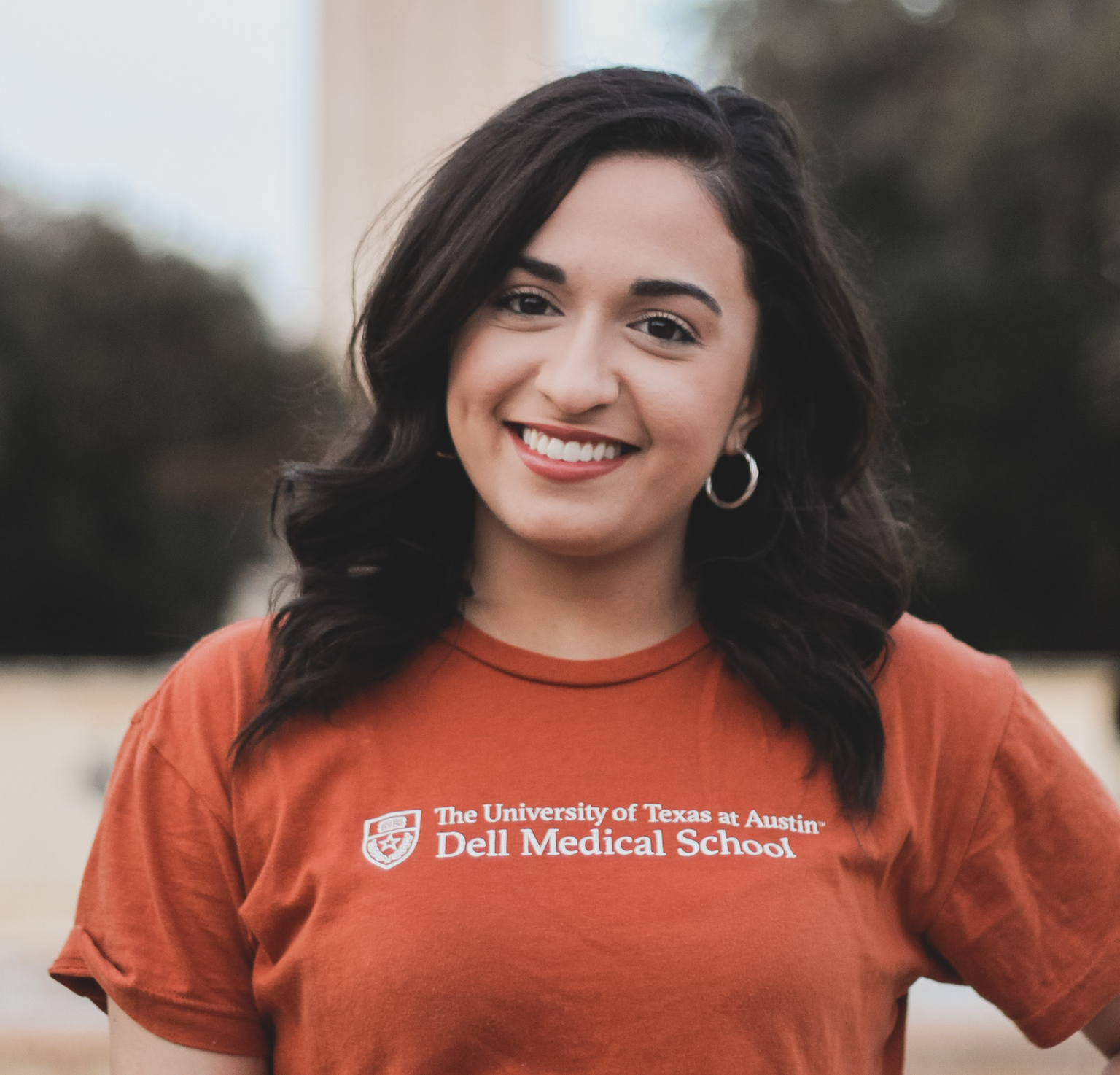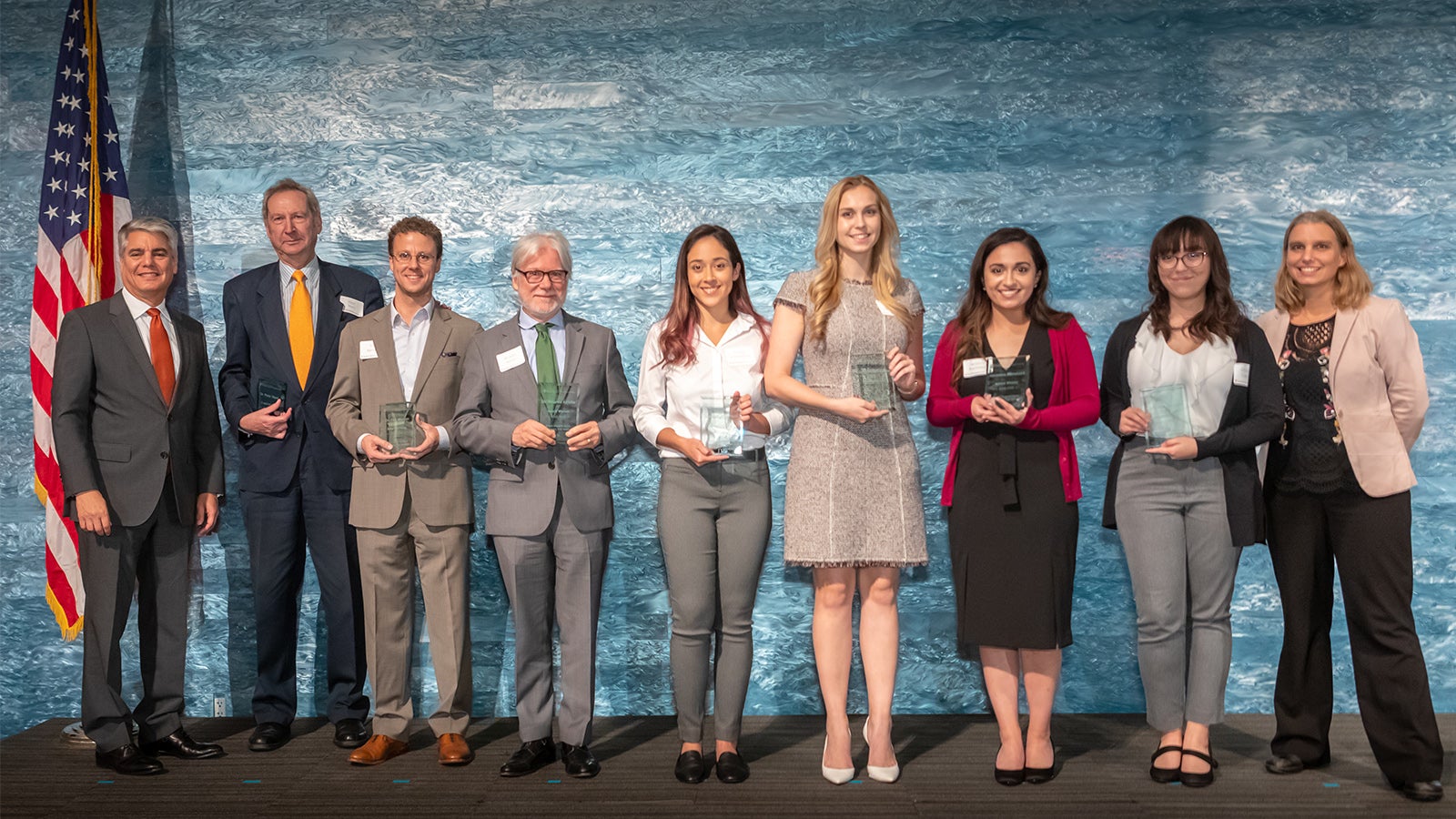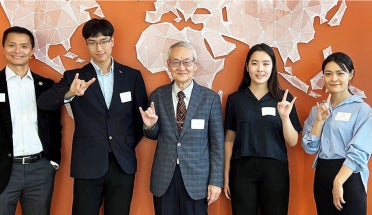
2020 UT Alumna, Incoming Dell Med Student Champions Fair Care for All
- Aug 25, 2020
- Global Initiatives
- by Suvi Bhalgat
UT alumna Veronica Remmert wants to help marginalized communities in the U.S. overcome healthcare disparities and ensure equitable treatment for everybody. After graduating this spring with a degree in biology and certificate in social inequality, health and policy, she is taking her passion for community health to Dell Medical School this fall.
Becoming a member of the newest cohort of Dell Med students is just the latest step of Remmert’s journey through the medical field. She has been actively seeking ways to improve healthcare throughout her career, conducting research in Puebla, Mexico on socioeconomic factors impacting healthcare—an initiative backed by the President’s Award for Global Learning.
 Remmert always held a vested interest in community healthcare, especially for marginalized communities in Latin America, due to her Venezuelan and Cuban heritage. Her interest in healthcare began forming at an early age, when she learned her sister had been diagnosed with a chronic illness.
Remmert always held a vested interest in community healthcare, especially for marginalized communities in Latin America, due to her Venezuelan and Cuban heritage. Her interest in healthcare began forming at an early age, when she learned her sister had been diagnosed with a chronic illness.
“My family was forever changed,” Remmert said. “Witnessing how my sister gained confidence due to the support she received has fueled my desire to empower others, ensure that they are not defined by their illness and receive adequate support inside and outside the clinic.”
Having this intimate connection and insight into care for a chronic illness, Remmert gained a first-hand education about the effects of social determinants on health. As a result, she wanted to help alleviate the adverse impacts of healthcare systems.
However, Remmert was unsure of how to get involved in such a research project while simultaneously fulfilling her rigorous requirements for medical school. Then, she heard about the President’s Award for Global Learning.
During her junior year, Remmert and her team of student and faculty researchers were awarded the inaugural President’s Award for Global Learning, a highly competitive program that funds interdisciplinary research teams looking to tackle the world’s most intractable challenges.
 Remmert’s team consisted of undergraduate students Christina Ciaburri, Claire Stephenson and Andrea Sandoval Flores as well as faculty members Dr. Ricardo Ainslie, Dr. Tim Mercer and Dr. Peter Ward. Their project was titled “Health and Housing: A Comprehensive Needs Assessment of Low-Income Communities in Puebla, Mexico.”
Remmert’s team consisted of undergraduate students Christina Ciaburri, Claire Stephenson and Andrea Sandoval Flores as well as faculty members Dr. Ricardo Ainslie, Dr. Tim Mercer and Dr. Peter Ward. Their project was titled “Health and Housing: A Comprehensive Needs Assessment of Low-Income Communities in Puebla, Mexico.”
“As the first cohort, we had the unique ability to be innovative, to carve a way for things to be done,” Remmert said.
In summer 2019, Remmert and her team left for Puebla, Mexico, where they were greeted with a warm welcome. The team conducted several weeks of field research in the form of hour-long interviews with locals.
“The openness and kindness were beyond anything I had ever received,” Remmert said. “Based on our personal experiences, we wouldn’t have opened the door to strangers and committed to an hour-long survey. However, the community members did just that, welcoming us with open arms, sharing intimate fears and even giving us food.”
The team’s findings enlightened Remmert about external effects on local healthcare. They performed air quality measurements and found important links between the built environment and healthcare. Additionally, they discovered the recent 2017 earthquake had left lasting trauma in the community of rural villages, resulting in a need for adequate mental healthcare.
Learning about these additional factors and inadequacies made Remmert realize she was interested in more avenues of medical work than she had initially set her sights on.
“I did not know coming into this project that I would be interested in housing and water quality," she said. "Hearing from the communities about their personal experiences and also hearing from our team about their specific interests and passions made me passionate about a wide variety of interdisciplinary causes."
Remmert says her team’s comprehensive research will have a tangible impact on the local community, who they visited again in October 2019 to share their results. She says that by sharing their messages and findings, the research will continue to benefit communities in Mexico.
“Too often, research reverberates within the walls of academia and does not impact the communities themselves,” she said. “We hope to provide communities with sustainable solutions for the future.”
Remmert’s team is currently working on compiling and sharing their research. They recently published an article in the Lancet Global Health Journal that details their methods and findings from the study.
Because of this experience, Remmert was chosen as a semi-finalist for the 2020 University Co-op George H. Mitchell Award, a student award for academic excellence. She also had the unique opportunity to present her research at the Latin American Studies Association Annual Conference and was also selected to present at the 2020 Consortium of Universities for Global Health Conference.
However, much like everyone else, the COVID-19 pandemic has affected Remmert’s plans to disseminate her work. She says that the situation has reaffirmed her value for empathy, a guiding principle for her career.
“Now, more than ever, we can see we are all intimately connected to one another, as we can see that viruses, and ultimately health behaviors, are not contained by borders,” she said. “Each action is impacted by our history and the constellation of socioeconomic factors that control us daily. We must take the time to understand where people come from and their perspectives, to not only improve the health of our own nation, but the health of the world.”
Despite the global crisis affecting her plans, Remmert remains resilient and optimistic about the future. Because of her deepened understanding of social factors on healthcare, she feels prepared to enter the medical world. She says that fairness in treatment and trust in doctor-patient relationships are key to providing equitable care.
“My experience in Puebla has changed me and will change how I connect with my future patients,” she said. “Just as our world and communities are diverse, my patients will be diverse, and each person will have unique perspectives and experiences that shape their health, relationships and ideas.”

Remmert’s research process gave her the skills to be an interdisciplinary thinker and taught her how to communicate with people from diverse backgrounds and check her biases at the door. She believes that this understanding is a product of her experiences abroad.
“International education gives students the opportunity to understand ideas other than the ones that they have grown up with or are surrounded by,” she said. “It is important to practice cultural sensitivity and take time to understand the perspectives of others.”
Remmert encourages incoming UT students to maximize their time on campus and the vast resources available to them.
“Explore your interests,” Remmert said. “Maybe something in a lecture is fascinating to you, you attend a talk about an issue you want to advocate for, or you read a book that enamors you — pursue that interest. Do not be afraid to reach out to professors, mentors, staff or advisors that are interested in that field or can connect you to someone. Take advantage of being at a world-class university and take time to cultivate your passions.”
Remmert hopes to continue conducting global health research in Mexico as well as serve the central Texas community where she grew up. While she is not sure what she will specialize in yet, Remmert’s global experiences have made her a more compassionate, determined and active person. She hopes to use these attributes to create a more equitable healthcare system and uphold fair care for all.



